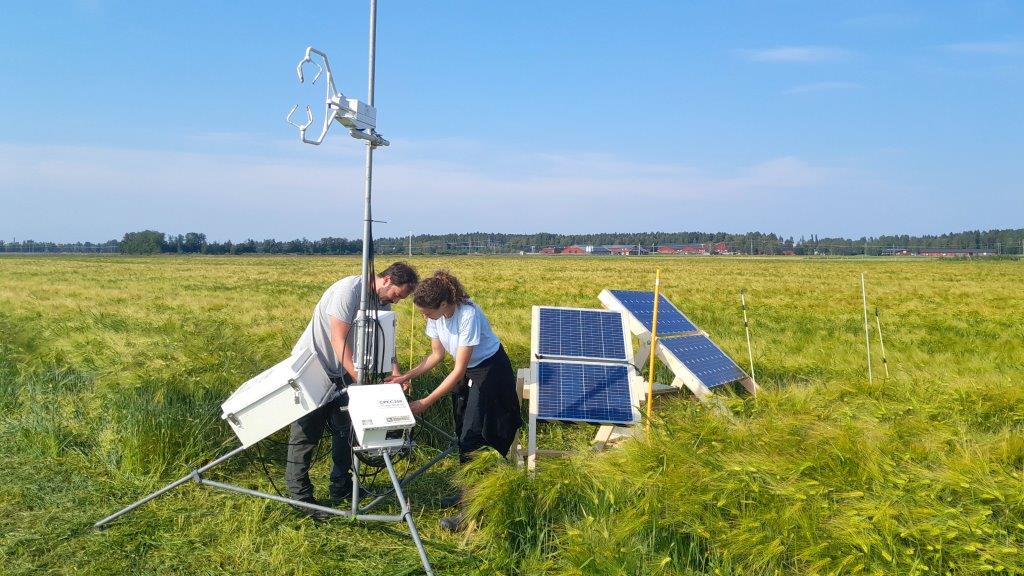SITES enables researchers to enhance field-based ecosystem research by supporting a network of field stations across Sweden. SITES offers expert technical competence at the stations for helping plan and implement research projects and provides open access to local monitoring and remote sensing data as well as contextual information about the surrounding ecosystems. Taken together, SITES provides a rich context for setting up field sampling and experiments at one or multiple stations across Sweden.
For example, at Röbäcksdalen Field Research Station, a pilot project using an Eddy Covariance (EC) flux tower, shows how such a collaboration can take place. This pilot project is a collaboration between Röbäcksdalen and Svartberget SITES stations, where the latter provides the tower, which is led by Matthias Peichl at the Department of Forest Ecology Management at SLU in Umeå. The location of the EC flux tower is on one of the larger fields at Röbäcksdalen station and is conveniently located near one of the SITES Spectral mast and between two of the sampling points in SITES Water. The land is used for feed production by the dairy farm operated by the Faculty of Veterinary Medicine and Animal Science at SLU, which is included in SITES Röbäcksdalen. The EC flux project will explore how climate change, and in particular warmer winters, will affect the carbon and water cycle of agricultural fields in the far north.
 Photo: Johanna Wallsten
Photo: Johanna Wallsten
The SITES 2024 Calendar theme is “SITES Collaborations”. SITES aims to promote excellent ecosystem research and high-quality data that support this research. This includes collaborations that increase the number of projects that utilize multiple SITES stations and connect between aquatic and terrestrial processes. Further, SITES aims to strengthen the collaborations with relevant research infrastructures and networks across Sweden and internationally, including data infrastructures and services. Each month during 2024, follow along as we highlight a unique SITES collaboration.